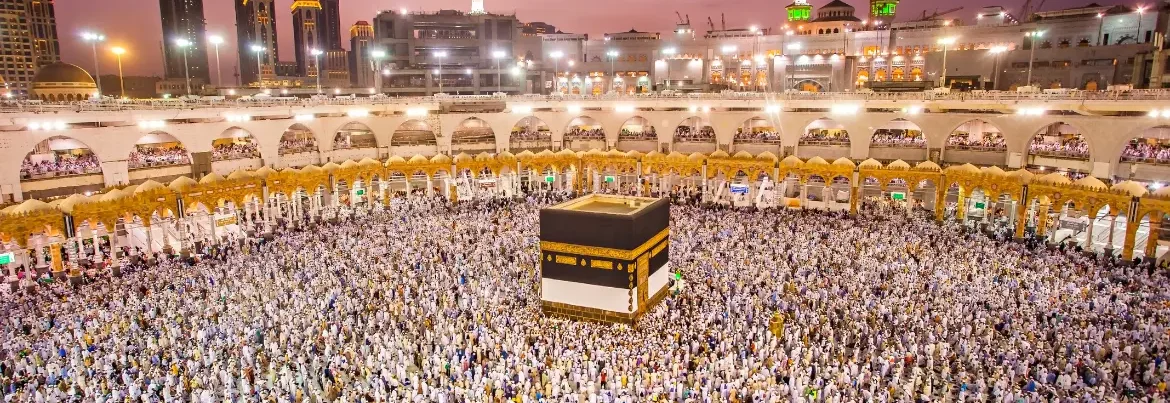
What the Qur’an and Sunnah Teach About the Rituals of Umrah?
Muslims perform the holy journey known as Umrah as it offers great benefits and spiritual rewards. Taking full advantage of the spiritual rewards and blessings requires doing Umrah as per Quran and Sunnah. Islamic travel agency offers a golden chance to perform the sacred journey at competitive rates, affordable services, and reliable amenities with their exclusive Umrah Packages from UK. The Holy Quran refers to undertaking Umrah; the Sunnah instructs us how to do it correctly. Let’s examine the teachings of Quran and Sunnah in more depth.
Spiritual Purpose of Umrah
The spiritual significance of Umrah lies in pure and sincere intention of pilgrims. Umrah isn’t just a physical journey but a spiritual travel to cleanse the soul and purify the soul. Quran encourages the devotees to perform Umrah
“And complete the Hajj and Umrah for Allah.”
The complete process of performing rituals can be learned through the Sunnah. Sunnah and Hadith books guide us from entering the Ihram to Tawaf, Ziyarah visits, including the prophetic actions to guide us through each ritual with sincerity, devotion and compassion. Using/mixing both the (Quran;Hadith) teachings we can lead a life of devotion according to Islamic teachings.
1. Ihram: the state of serenity
Ihram is the first step of the Umrah journey. The Quran asks the pilgrims to prepare and get ready for Ihram with a pure heart and sincere intention and the Sunnah teaches us the proper way of entering into the state of tranquility. Pilgrims wore simple, clean and pure garments. Sunnah teaches us that before entering into Ihram devotees should bathe, trim nails, clean themselves, and be humble. Use of scented and perfumed items are forbidden. The holy Prophet Muhammad PBUH entered the state of spiritual serenity with pure intention and sincere heart while reciting the Talbiya as: “Labbaik Allahumma Labbaik”
Meaning, here I am O’ Allah, marking a sacred connection between the pilgrims and the creator.
2. Tawaf: circling the Kaaba
As second ceremony, pilgrims conduct Tawaf upon entering into the state of Ihram. They start and end at the same spot to complete the Tawaf. called Hajar Aswad, facing the Kaaba. Pilgrims complete seven circles around the Kaaba. Dating back to the time of Hazrat Ibrahim AS, when Allah requires him to build the Kaaba for worship and prayer.
The Quran refers to the Kaaba as the most revered house on earth. And performing Tawaf is a symbol of unity as the pilgrims show their submission to Allah at the same time. It is approved by the Pilgrims finish the seven rounds around the Sunnah to execute the rite as the Prophet Muhammad PBUH himself executed the Tawaf with peace and piety. Each loaded with reflection and prayers, Kaaba links us to the footsteps of spirituality and the sacred Prophet and soothes our hearts when we chant aloud, in harmony:
“Bismillah, Allahu Akbar.”
3. Sa’i: walk between teh hills of Safa and Marwa
As the name shows, Sa’i is walking between the Safa and Marwa to honor the patience and faith of Hazrat Hajar AS (the wife of Hazrat Ibrahim AS). The Quran mentioned these hills as: “Indeed, Safa and Marwa are among the symbols of Allah.”
The incident teaches us the themes of patience and devotion. The importance of Sa’I is also mentioned in Quran declaring the deed as an act of submission to Allah. The actual incident dates back to the time of Hazrat Ibrahim AS when his wife Hazrat Hajar AS ran between the hills to find water for her little son. Her patience, her faith, and her trust in Allah were accepted and she was awarded with divine water by Allah SWT. The ritual teaches us patience, submission and reliance on Allah, while connecting us to the Islamic Legacy.
4. Drinking Zamzam
Zamzam is a heavenly water and a sacred gift from Allah SWT for the Muslim Ummah. Allah SWT blessed Hazrat Hajar AS with this divine gift as a reward of her patience, faith and unshakable trust in Allah. Hazrat Muhammad drank this water and was also encouraged to do so as it has healing, forgiveness, and guidance properties. Ramadan Umrah packages from UK presented by Islamic travel agency offer the opportunity to bring this sacred water home for your loved ones too.
5. Halaq or Taqseer: final step
The ritual of is Halaq (shaving the head for men) and Taqseer (trimming the hair for women). After fulfilling the ritual you complete the Umrah journey submitting your compassion and devotion to Allah SWT. The act of shaving or trimming hair is mentioned in Quran (Surah Al-Fath 48:28):
“Indeed, Allah has fulfilled His Apostle’s vision in all truth: You will enter the sacred mosque, Dod willing, in safety and without nay fear, with your heads shaven or hair cropped. So, He knew what you did not know, and He assigned (you) besides that a victory near at hand.”
According to Sunnah, Prophet PBUH preferred shaving but also allowed trimming, reminding pilgrims
that each act- big or small is meaningful.
Umrah doesn’t end with the end of rituals, the journey continues in the heart. It offers you renewed energy and purified spirit to begin a life guided by the Islamic teachings. It is a new beginning to start a life with more light and spiritual rhythms aligned with daily life to enjoy a spiritually focused nd fulfilled journey.
